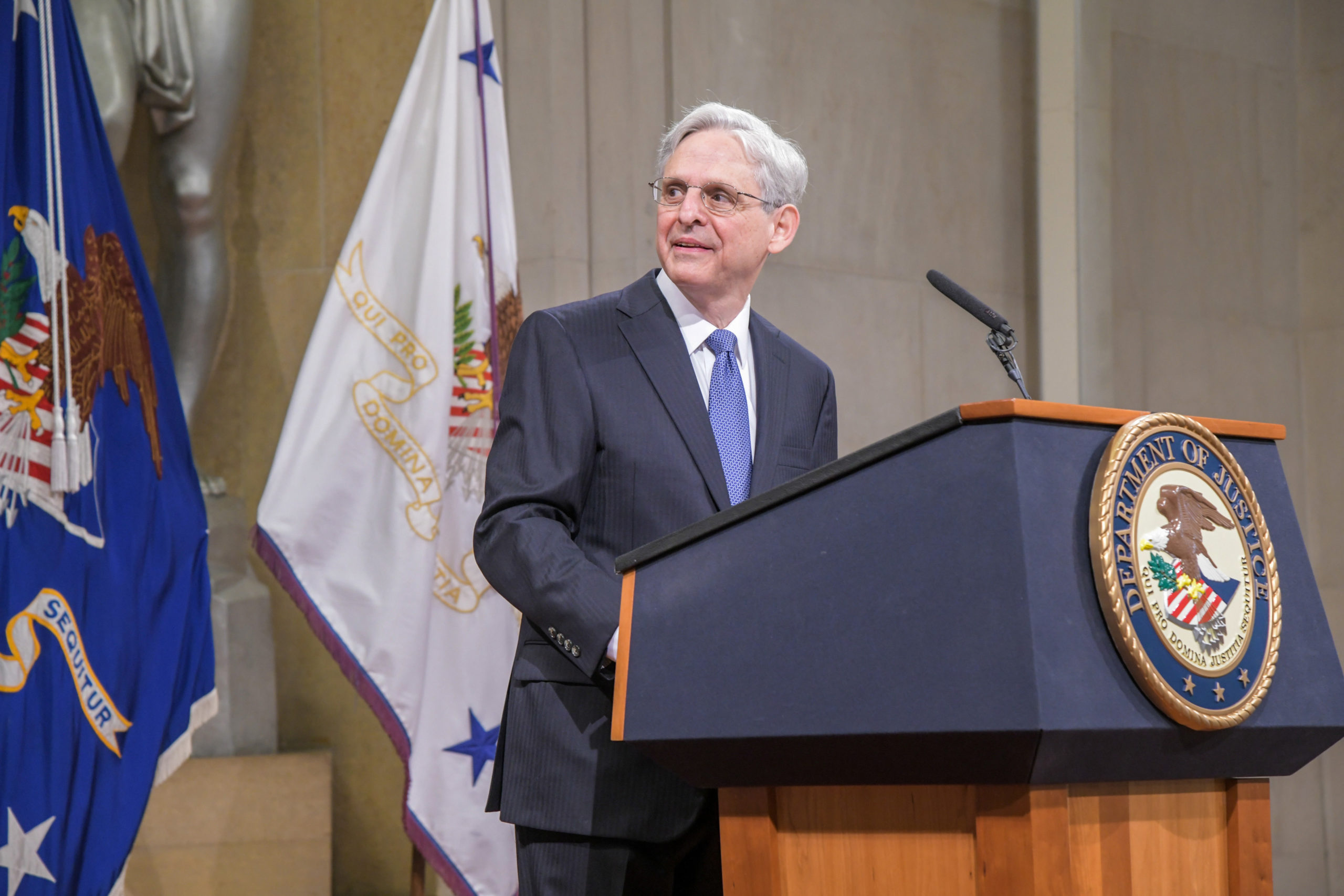After years spent promising Americans that their “first priority in corporate criminal cases is to prosecute the individuals who commit and profit from corporate malfeasance,” the Department of Justice just let another corporation off the hook. TD Bank, now the largest bank in U.S. history to plead guilty to money laundering and violations of the Bank Secrecy Act, now must pay more than $3 billion in fines in settlements with the DOJ, the Office of the Comptroller of the Currency, and the Treasury Department’s Financial Crimes Enforcement Network. While it’s true that multiple billions of dollars in fines is nothing to scoff at, the truth is that the punishment is lenient for the extent of TD Bank’s wrongdoing.
As explained by Popular Information’s Judd Legum and Rebecca Crosby, only two lower-level employees were actually charged with crimes. But the DOJ’s investigation revealed that senior executives at TD Bank (including the bank’s eventual chief anti-money laundering officer!) hindered anti-money safeguards and ignored concerns brought forth by regulators and auditors alike.
That senior decision makers could willingly disregard corporate malfeasance happening directly under their purview (including a $670 million drug money laundering scheme) and not face more serious punishment from the DOJ is concerning. And by refusing to go after TD Bank higher-ups, Merrick Garland is contradicting both explicit DOJ policy itself as well as his own ostensible commitments to confronting white collar crime.
It was Garland himself who spoke about the importance of criminally prosecuting individual executives back in March:
“[O]ur first priority in the area of white-collar crime is going after individual bad actors… All of us in this room know that the acts of corporations are actually the acts of individuals. All of us in this room who have counseled corporations—and I did very early on in my career—know that the greatest deterrent to white-collar crime is fear of individual prosecutions of the executives and companies. But the most important element of this is the rule of law. That people see that if a corporate executive is held to account, is in prison for a corporate crime, people are being treated equally, that there isn’t a different set of rules, that like circumstances are treated alike. That increases respect for the rule of law, and, conversely, without that, people’s respect for the rule of law goes down in every element.”
Yet, Garland’s lack of conviction, while upsetting, is not solely to blame here. Perhaps more concerning is the role that the revolving door between the DOJ and Big-Law also played in securing TD Bank executives their get-out-of-jail-free card, given that the bank’s defense team notably included former Attorney General Loretta Lynch.
While she’s currently a partner at Paul Weiss, Lynch’s history in government goes beyond her two years of service as AG during the Obama Administration. Her earlier government stints include serving as the Chief Assistant to the U.S. Attorney for the Eastern District of New York and U.S. Attorney for the Eastern District of New York, during which she entered a lenient agreement with HSBC after a money-laundering investigation; a fact Senate Republicans later criticized during her confirmation to Attorney General.
As Legum and Crosby note, given how regularly DOJ prosecutors must “rely on internal investigations overseen by the defendant’s attorney”—a consequence of inadequate resources at the agency—having someone as familiar with the DOJ as Lynch is extremely advantageous to TD Bank. If simply abiding by the law is too difficult an ask, and not getting caught is out of the question, then corporate crooks can at least avoid the full consequences of their actions by massaging the referees, often by hiring former regulators.
This dynamic is unfortunately not all that uncommon. Kathryn Kranhold’s recent piece in The Examination explains how the Food and Drug Administration’s attempts to fight the tobacco and vaping industry have been made more difficult thanks to revolving FDA lawyers.
The damage of the revolving door is also apparent when those with private sector allegiances are brought into government. As my colleague Andrea Beaty described in The American Prospect back in March, revolvers currently within the government have a role to play. Deputy AG Lisa Monaco, for example, (whose corporate ties we at the Revolving Door Project have previously called attention to) has run the DOJ in a manner that “continues to rely upon leniency agreements that delay or even forgo prosecution, instead of lawsuits to resolve cases.” Such an approach to governance flies in the face of the populist, and popular, corporate crackdown approach to regulation embodied by Antitrust Division Assistant AG Jonathan Kanter.
While Garland maintained that “criminal investigations into individual employees at every level of TD Bank are active and ongoing,” the fact no higher-level employees have been charged invites skepticism. The DOJ’s sparing of senior TD Bank executives denies us the type of corporate accountability Americans want to see from federal enforcers, further entrenching cynicism that the system is broken. Pervasive revolvers are a key reason why corporate America succeeds in staving off accountability—and the resulting anger helps fuel dark forces in our politics. The Justice Department must demonstrate more spine against oligarchic crime of all sorts, from January 6th to money laundering, pollution, food and worker safety, and beyond.
Follow the Revolving Door Project’s work on whatever platform works for you! You can find us on that website formerly known as Twitter, Bluesky, Instagram, and Facebook.
Want more? Check out some of the pieces that we have published or contributed research or thoughts to in the last week:
Memo: Is SCOTUS Avoiding Politically Sensitive Issues Before November?
What Harris Needs to Say About Hurricanes
A Brief History Of Matt Yglesias Screwing Workers
The Worst Milton Since Friedman
Support for a Corporate Crackdown is the Norm

